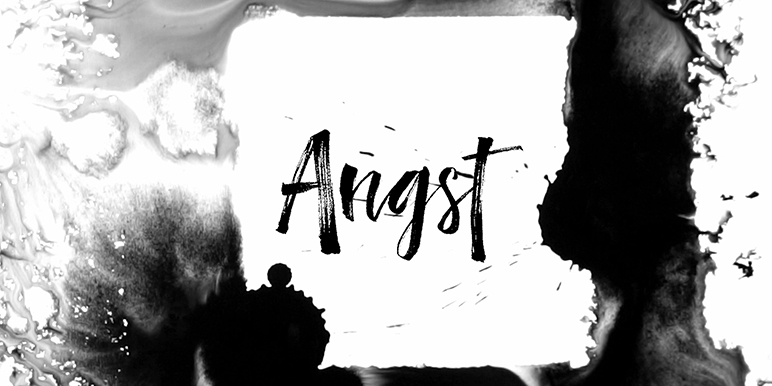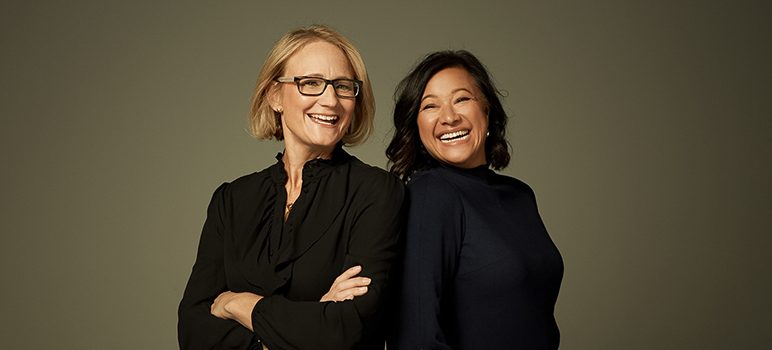Anxiety and its related disorders are incredibly common, but, unfortunately, talking about them isn’t. How did we get to this point of judging ourselves so harshly, suffering quietly and not seeking help because of a societal stigma? And how did we get to this point that continued anxiety and isolation can even lead to death, an option that deceptively seems better than asking for help?
Silence feeds the stigma, and the stigma keeps us quiet.
I am the mother of a teen with an anxiety disorder, a woman who suffers from anxiety and a filmmaker who spent a year interviewing teens and families, many of them in the Bay Area, as well as psychologists, for Angst: Raising Awareness Around Anxiety, an international documentary film about teen anxiety. Through these experiences, I’ve learned the healing power of admitting we are drowning in anxiety.
Yes, anxiety is increasing … but it is also very treatable. The first step to treatment is finding the words to talk about it.
I consider us fortunate that we now have a diagnosis, knowledge, and tools to manage my son’s anxiety. Not so long ago, we lived in the dark, lonely shadow that anxiety casts. It was a race against time to get answers before his anxiety almost killed him.
My son was a silent sufferer. He earned perfect grades and behaved well. Teachers loved him and yet ... he wanted to die. When I first sought answers, I was perplexed when I got advice that felt like a brush off: Anxiety is normal. Seriously?
My experience felt anything but “normal” as I watched my naturally curious son with the infectious laugh start isolating, pulling away from friends and dropping out of his sports. He was becoming depressed and I couldn’t figure out how to help him. He didn’t just want to die, he obsessed about dying as it was the guaranteed way to avoid doing anything that brought him emotional discomfort. He was slipping away, and I wondered why someone couldn’t give me the magic answer.
Then I figured it out—once I realized I couldn’t figure it out. I finally started talking about it and reached out for help; that’s when I learned that my own anxiety was contributing to his downward spiral. By trying to protect him, I inadvertently made him feel incapable, which worsened his anxiety. I learned I needed to allow him to feel difficulties, ride through the discomfort to ultimately come out the other side feeling more resilient.
Figuring out the equation for what is a “normal” level of anxiety versus a harmful anxiety disorder is different for everyone. Through my journey with my son and the lens of the camera, I’ve learned that we all need to measure anxiety against our own lives. Some of the experts I’ve met along the way have asked me these questions, and I continue to use them to gauge the anxiety levels in my home:
Is anxiety causing you to miss out on the things you used to love doing?
Is it keeping you from interacting with those you love?
Is it keeping you up at night?
Is it causing you physical pain, such as stomach aches?
If the answer is “yes” it might be time to start talking about it. One of the teens I interviewed for Angst shared that while talking about anxiety is the thing that helps him the most, it actually might suck! He’s right. It might.
But it doesn’t stop at sucks. It can get better.
A lead therapist at Waypoint Academy, Jenny Howe—who also is the narrator of the film—treats teen boys with severe anxiety. I will never forget her words that have given me such comfort and hope.
“The best part of my job is knowing, without a doubt, that people can change,” she said.
We are capable creatures. Anxiety and pain are hard, but if we can talk and ask for help, despite the stigma, we can change.
The teens who so bravely shared their stories for Angst inspire me. I hope that they inspire others to speak up, too. It’s talking about it that will lead us to find the resources and tools that will provide us with the hope and the help we so deserve.
Karin Gornick is a producer of the IndieFlix original film Angst: Raising Awareness Around Anxiety, which is being booked in schools, communities and corporations around the world. She created this film with co-producer Scilla Andreen. Opinions expressed in this article are the author’s own and do not necessarily reflect those of San Jose Inside. Want to submit an op-ed? Email pitches to
je*******@me*******.com
.



I read recently that anxiety is a natural response to things we encounter in life; a survival trait. That makes sense, since we wouldn’t be anxious if it didn’t have some survival value.
Like most folks, I probably had the same symptoms described here at one time or another. If kids know they’ll outgrow them it should help them get over their anxiety.
Anxiety is caused by life. Anxious kids should be told that everyone responds to stimuli differently because we’re all different—but if they keep their eye on the ball and not let themselves be distracted by extraneous distractions like anxiety, they will accomplish their goals. That will be better for their mental health than almost anything else.
As they mature they will learn that anxiety is just nature’s way of making us aware of every possibility, so we don’t get blindsided, but sometimes nature goes overboard. Maturity is what provides the understanding that 9 out of 10 things that we worry about will never, ever happen—and that our anxiety over worry #10 is only one-tenth as scary as it seemed in our imagination.
But they need to live it, not just be told, because anxiety is the problem—not whatever they’re anxious about at the moment. If they’re not walked through the process, they’ll just transfer their anxiety to the next thing, and worry about that.
The author is right, deconstructing their anxiety by talking about it, and walking them through it step by step, enables them to see what’s happening. When whatever it is that they’re anxious about then is past, they should talk about why their anxiety was wasted effort.
It may take repeating the process several times, but people are problem solvers and eventually they’ll understand that their anxiety is the problem—not whatever made them anxious at the time.
Finally, it’s possible, even likely, that the kids’ parents are too anxious about whatever is causing their kids anxiety. It’s certainly scary if they believe their kid wants to die!
Since worrying about that (extremely remote) possibility is something that could cause huge anxiety in a parent, discussing it with other parents should help them control their anxiety in the same way that talking about it helps kids. As Marge says: “Can’t hurt, might help!”
> Anxiety is normal. Seriously?
Yes. Seriously.
> Figuring out the equation for what is a “normal” level of anxiety versus a harmful anxiety disorder is different for everyone.
So, have you ever asked yourself “what is a ‘normal’ level anxiety’ for you?
Anxiety is normal, you know. Seriously.